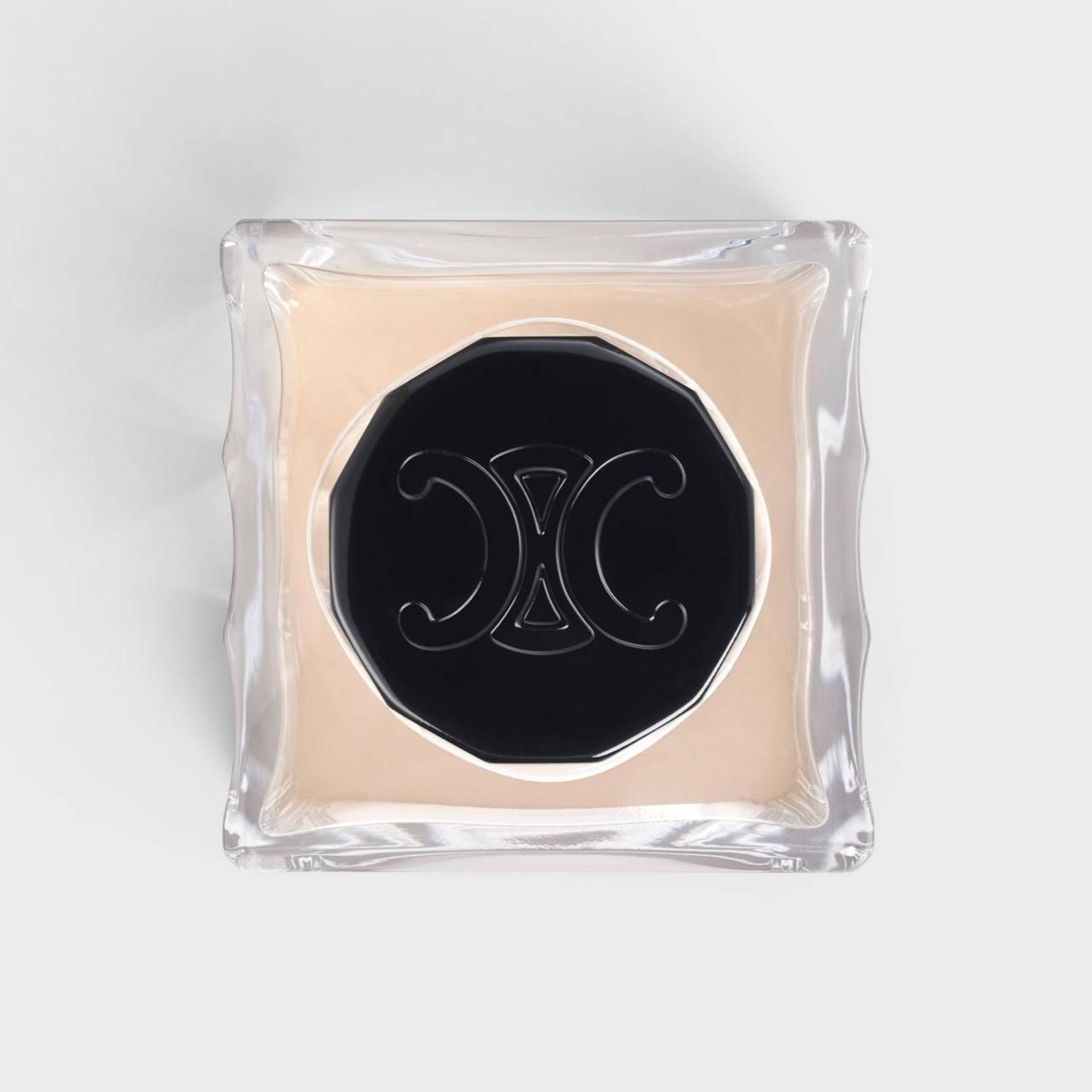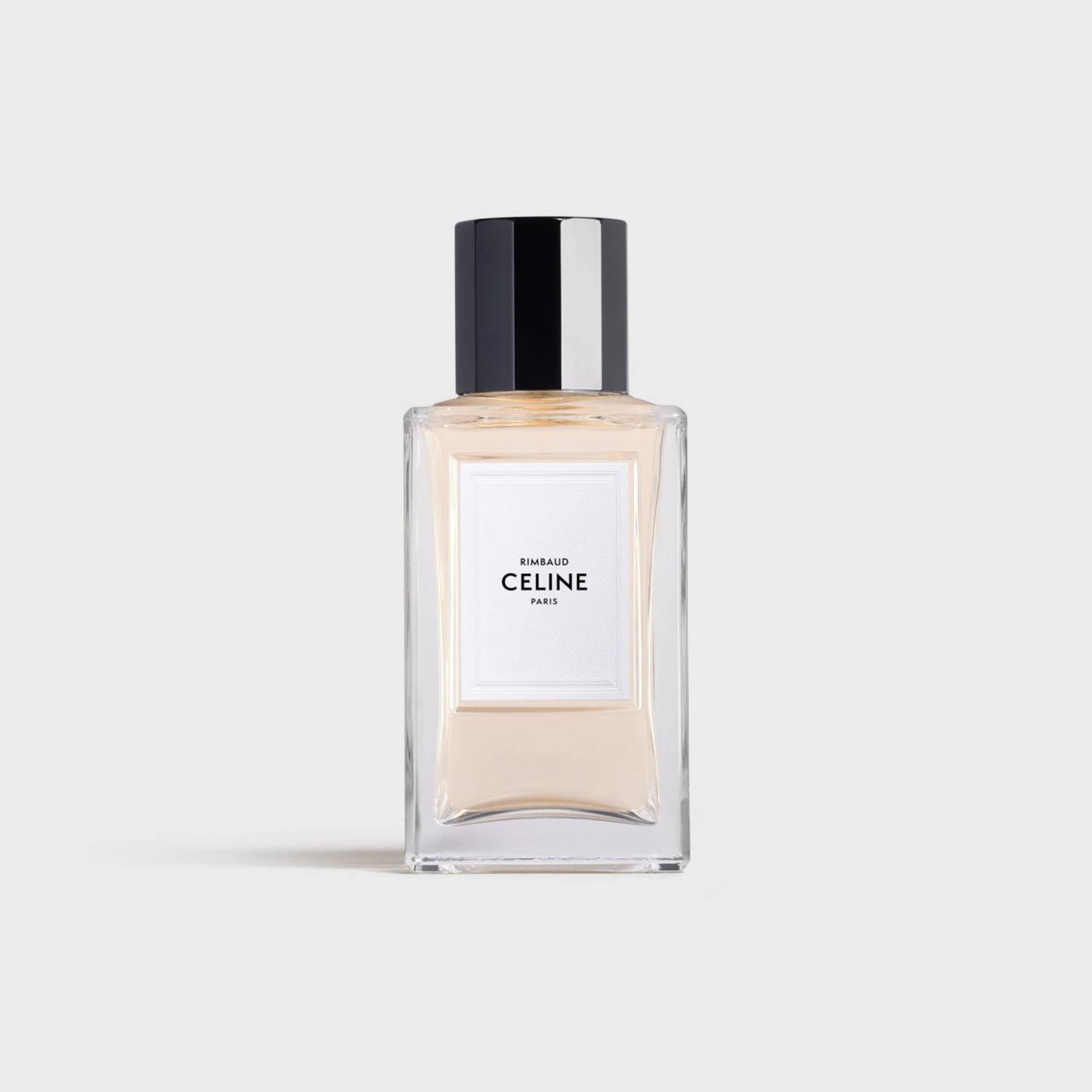In warmer times, the floral antecedents grow, separate and parallel. The sun is in Cancer, or Leo, so the harvest is here: lavender – a split-second – transmutes into something powdery, confected. Iris, ringing of introversion, so fragile it skirts the threshold of perception. How to describe scent when it unfolds in duration? Observation commands total presence, situated in the perpetual, ephemeral moment: each note noticed is another lost.
Rimbaud, still an adolescent, proclaimed his retirement from the business of recollection: “The time has come to bury my imagination and my memories!” Language has staying power. The written index of his torments ended with “Farewell”: Rimbaud quit poetry in order to “invent new flowers, new stars, new flesh, new tongues.” A year earlier, in “The Sleeper in the Valley”, which would serve as inspiration for a young Hedi Slimane: “No odour makes his nostrils quiver / He sleeps in the sun, his hand on his breast / At peace.” The coda to Celine’s haute parfumerie, launched under Slimane’s creative direction, takes its name from this flashback: languid youth reciting Rimbaud, resonance outlasting the desire to record.
Smell is conterminous with memory, the only sense linked directly to the human limbic system. Skipping the thalamus, it cuts straight to the amygdala, the brain’s emotional centre, uniquely capable among our perceptive channels of evoking feeling directly from the source. Andy Warhol famously catalogued perfumes, switching fragrances quarterly so that he could later, instantaneously and precisely, call past selves to mind. A permanent smell collection, subdivided into three-month chunks. Fitting, then, for fragrance to be rooted in retrospection.
Rimbaud relinquished his practice of marking time through language, but never shook off posterity’s pull. In 1883, he took six photographs – maybe a few more – the medium young like the artist himself. He developed them in dirty water, so these indices, unlike Barthes’ butterflies, anesthetised and fastened down, are ever unstable. Familiar drama: details are fleeting and grow weaker in time. Is any medium of memory really stable? Technologies of recollection are always inventing new flowers, new stars, new flesh, new tongues. Whether these accounts are faithful – like Warhol’s affect-on-demand sought to be – or suffused with something we can only skim ultimately comes down to how we choose to record them.
___
RIMBAUD, the fragrance from CELINE HAUTE PARFUMERIE, is available here.



